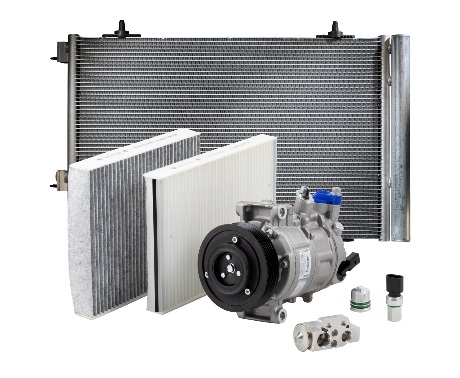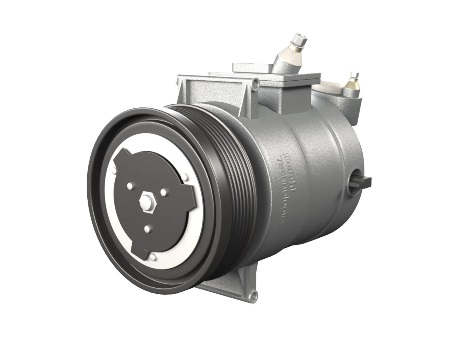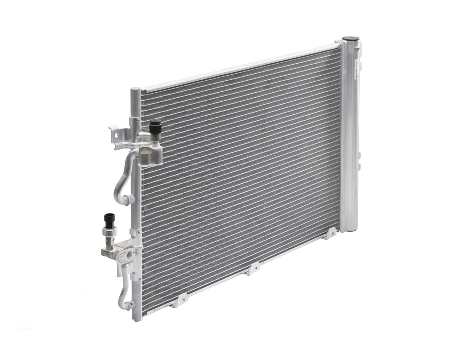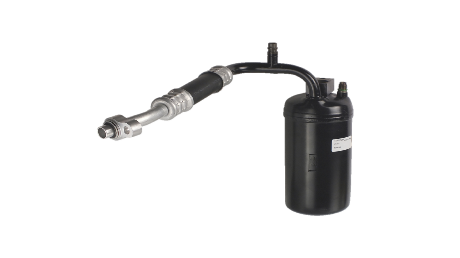Cabin Air Filters

High-performance media
All our cabin air filters use a high-performance, non-woven fabric to eliminate dust, pollen, bacteria and exhaust particles, amongst others. The specially designed filter fabric contains up to five individual layers, removing near 100 percent of harmful pollutants.
Enhanced protection
Over time moisture can build up in the filter and become a feeding ground for bacteria and mould. This can then spread into the lines of the HVAC system, where it emits unpleasant odours. For the ultimate protection from this and other pollutants, we also offer a range of carbon activated filters. Our carbon activated filters feature the same high quality, non-woven fabric as our particle filters, with the addition of a layer of activated carbon. Sandwiched between two layers of fleece, this highly effective technology removes more pollutants than standard filters, and expels nasty gases and smells too.
The Delphi Difference
-
100 years of OE experience, supplier to the world’s top automakers
-
OE heritage and knowledge built into every aftermarket part
-
Comprehensive portfolio for a wide range of vehicles and model years
-
Streamlined SKUs for easy inventory management
-
Support through tools, tips and training

Related product resources and downloads

Resource Highlights
In this article, you will find about how and when to service the air conditioning system on hybrid vehicles.
Whilst hybrid vehicles still represent a relatively small percentage of the parc, compared with conventional powertrains, the population continues to grow rapidly. And will do for many more years to come. So, if you haven’t already, now is the time to familiarise yourself with the common systems. One of these being A/C. Just like their diesel and petrol counterparts, A/C on hybrid vehicles still requires regular servicing. Whilst for the most part the procedures are common, there are some differences that you need to be aware of, in order to capitalise on this opportunity.
One obvious change, is the high-voltage battery. Containing anything from 14 volts to over 200 volts, this adds an extra layer of complexity, and before attempting any A/C service, extra precautions should be taken. Technicians, for example, must power down the system to reduce any risk of electric shock when working in or around the electric compressor. For this reason, it is recommended that technicians should hold an approved hybrid/electric vehicle accreditation before working on high voltage vehicles.
Another difference is the components. Earlier generation hybrids such as the Toyota Prius (2001-2003) use a scroll compressor which is powered by either the belt, when the engine is running, or electrically when the engine if off. Most newer hybrids (2004 onwards) have moved to an electric compressor. Consisting of a spirally wound fixed scroll and variable scroll with a brushless motor, it runs on high voltage AC. This is supplied by either a small inverter, which inverts part of the DC battery power into AC, or an electric motor that’s built into the compressor housing, and powered by AC voltage from the vehicle’s power supply system. This allows the A/C system to operate even if the engine is not running.
Aside from the variation in component and system design, the biggest difference is perhaps the type of oil used in the system. Conventional A/C systems typically use PAG or Ester oil, however, all hybrid vehicles require a special polyolester (POE) type oil. These oils have high dieletric or non-conductive properties, that are designed to lubricate the compressor whilst protecting the compressors electrical windings.
Research has shown that as little as one percent of PAG oil in a hybrid system can affect the dielectric properties, reducing the insulation resistance of a compressor from over 10 mega ohms to less than one mega ohm. An impaired winding can damage the compressor, and even shut it down completely because of small voltage leaks that may occur. More worryingly, it can also conduct high voltage to the compressor housing and connected components, causing a harmful and potentially lethal shock to anyone coming into contact with it. Consequently, some vehicle manufacturers recommend that all system components are replaced if cross contamination of the oil has occurred in a hybrid vehicle, potentially resulting in a very costly service and an unhappy customer.
To avoid this, every possible care should be taken to ensure the correct oil is used. Garages should invest in a J2788H specification recharging machine designed to work on both conventional and hybrid systems. Failing that, if a non-J2788H machine is used for conventional A/C systems, it should not then be used on hybrid vehicles with an electrically driven compressor, as residual PAG or Ester oil may still be present and inadvertently introduced into the vehicle during recharging.
"Every possible care should be taken to ensure the correct oil is used."
So, as you can see A/C systems on hybrid vehicles are not necessarily any harder to service than other vehicles; they’re just different. By understanding these differences, following the relevant safety precautions and investing in the right tooling and training, you will be well positioned to take advantage of this rapidly expanding and lucrative opportunity.

Visit our Technician Library for access to Documents and Downloads
Get in touch
The full Delphi Air Conditioning product range
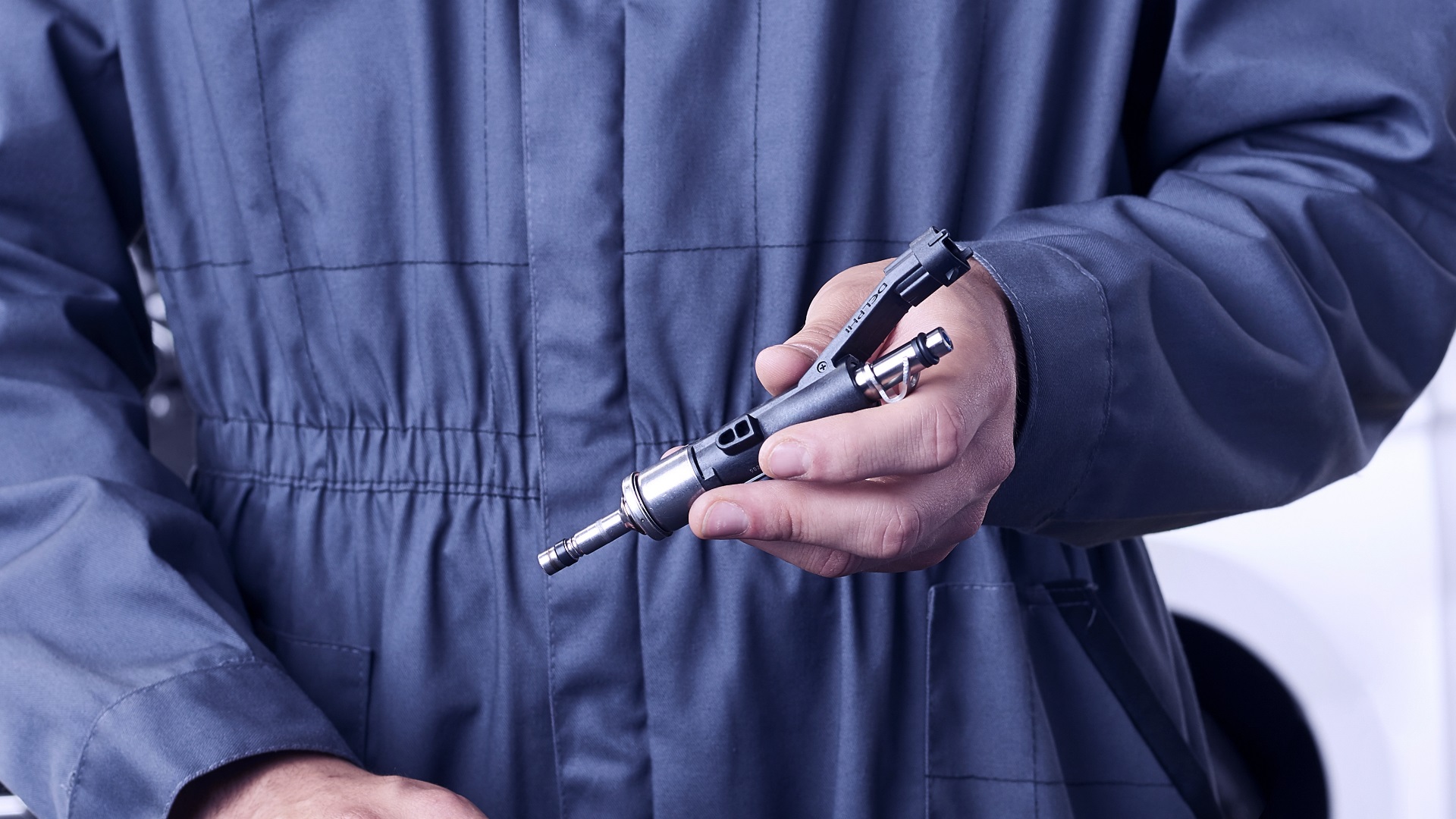
Find out where to buy Delphi parts

.tmb-460w.jpg?Culture=en-GB&sfvrsn=c70917c0_6)
